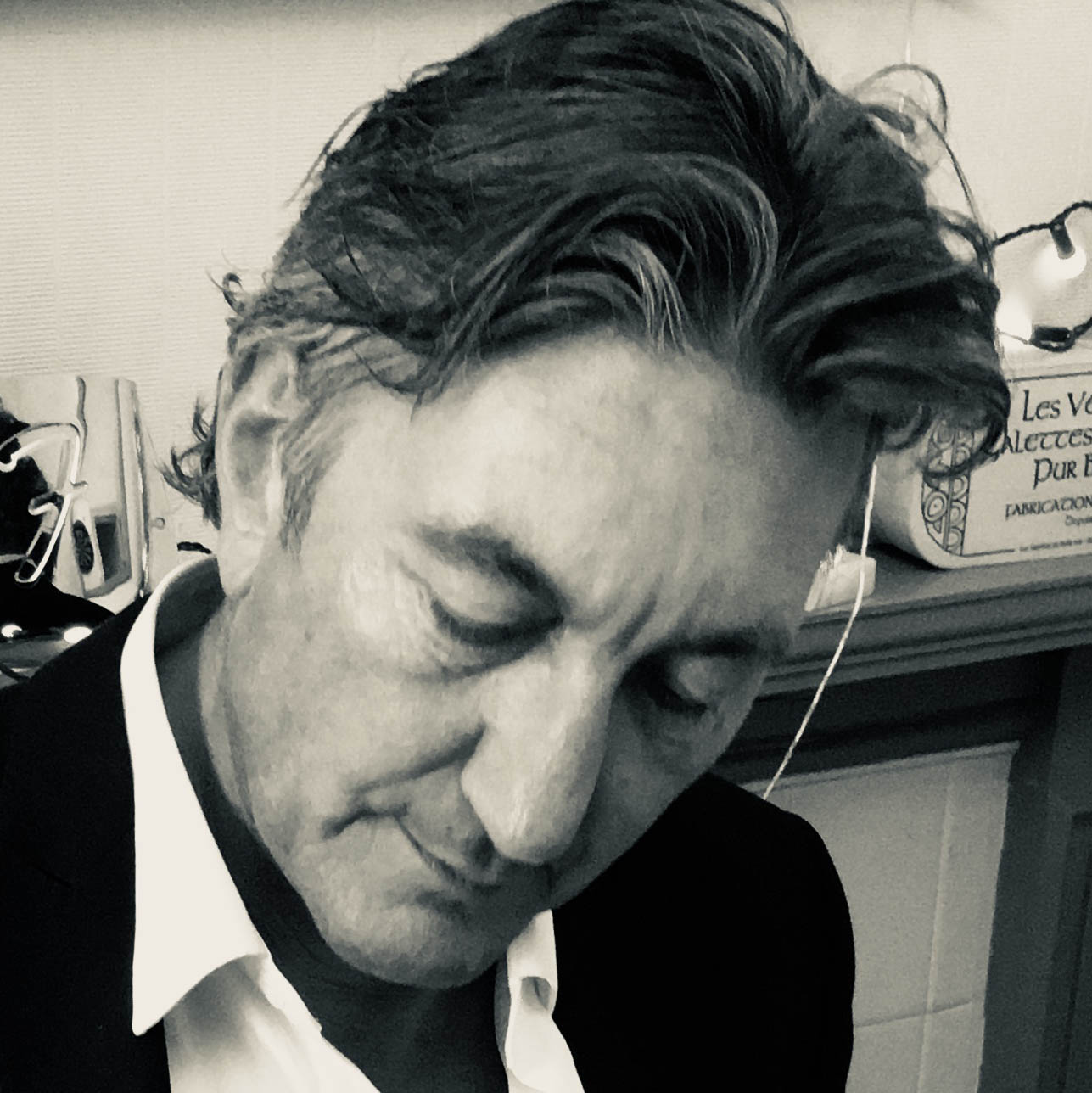“I ended up rewriting the lyrics and changing the whole song because Tony broke up with me”: How Gwen Stefani channeled the pain of rejection into the No.1 song that catapulted No Doubt to worldwide fame
"I gotta write about what’s in my head – and that’s the only thing on my mind”

Want all the hottest music and gear news, reviews, deals, features and more, direct to your inbox? Sign up here.
You are now subscribed
Your newsletter sign-up was successful
Few factors will spark disharmony within a band quite as efficiently as a romantic relationship that is hurtling towards the rocks.
The one upside is that the emotional intensity of an imploding relationship can often result in great songs.
Famously, Fleetwood Mac’s 1977 album Rumours was brimming with such compositions – songs such as Go Your Own Way, Lindsey Buckingham’s biting and hurtful response to his break-up with Stevie Nicks, and Dreams, Nicks’ far more philosophical take on the same relationship.
ABBA’s The Winner Takes It All, the lead single from their 1980 Super Trouper album, was written after the divorce of members Björn Ulvaeus and Agnetha Fältskog, while Belle & Sebastian’s 2001 single I’m Waking Up To Us was about the break-up between band members Isobel Campbell and Stuart Murdoch.
And then there is Don’t Speak, the 1996 alt rock power ballad from California four-piece No Doubt, which started life as an upbeat love song before lead singer Gwen Stefani and her keyboard-playing brother Eric almost completely rewrote the song following the break-up of her relationship with the band’s bassist Tony Kanal.
The song topped the charts in 13 countries and spent 16 weeks as the most played song on US radio. 30 years after its release, it remains a powerfully emotive and infectiously catchy track.
No Doubt were formed in Anaheim, California in 1986 and by the release of their eponymous debut album in 1992 their fluctuating line-up had settled into Gwen Stefani (lead vocals), Eric Stefani on keyboards and backing vocals, Tom Dumont (guitar), Tony Kanal (bass) and Adrian Young (drums).
Want all the hottest music and gear news, reviews, deals, features and more, direct to your inbox? Sign up here.
Their synth and new wave-influenced debut failed to make any real impact but its ska-punk-inspired follow-up, The Beacon Street Collection, did. Released in March 1995, the album sold over 100,000 copies.
In October 1995, No Doubt released their third album Tragic Kingdom, which was fuelled by the southern California ‘third wave’ ska resurgence of the mid-’90s.
By then, Eric Stefani had left the band, reportedly preferring songwriting to the gruelling schedule of touring.
According to a feature by Ellise Shafer in Variety in April 2021, the band’s commercial ambitions were also behind Eric’s decision to quit the band in 1995. But by then, Eric and his sister Gwen had already written the breakout song that would send their band stratospheric – Don’t Speak.
The song had a long gestation as Gwen Stefani told The Guardian in November 2024, when she responded to reader’s questions. “The original version was written by my brother, who lived at my grandparents’ house; after they passed away, it became the band house. He’d stay up all night eating peanut butter sandwiches, drinking milk and smoking cigarettes and go: ‘Oh, I wrote this last night’.”
Gwen walked into that same band house in Anaheim one day back in 1993 and heard her brother Eric playing a tender piano motif that stopped her in her tracks. Gwen and Eric immediately began writing a song around the piano part, and Gwen’s lyrics focused on celebrating her seven-year long romance with bassist Tony Kanal.
The verses were radically different from the version that was eventually released. “I can see it all in an eye blink/I know everything about how you are/I can understand exactly how you think/Between you and me, it's not very far.”
But the chorus already had the powerful and memorable hook and it sounded like a hit. “The vibes were there, the chorus was almost exactly perfect,” guitarist Tom Dumont told The Independent in April 2023.
In an earlier interview with the Complex UK website in 2012, Dumont discussed the numerous early incarnations of the song, one of which featured Eric Stefani playing an accordion.
“There’s an earlier version of the song where the verses are totally different," he said, "which is a really beautiful version and it’s awesome but it’s way more jazzy and really different. That song had a long incubation process.”
Don’t Speak was soon in the live set and scheduled to be included on the forthcoming third album. Then, in late 1994, everything changed when Tony Kanal broke off his relationship with Gwen Stefani.
“I ended up rewriting the lyrics and changing the whole song because Tony broke up with me,” Stefani told The Guardian in November 2024.
The verses also underwent a complete rewrite from Eric Stefani. “Eric and I went into the garage, stubbornly and very irritated about the situation, and sat down and rewrote the verses and lyrics,” Gwen told The Independent.
The result was dramatic. Gone were the airy musings about a blissful relationship, replaced instead by direct lyrics that were inspired by the emotional pain of the breakup, making the whole song far more defiant, powerful and heartfelt.
The song that emerged was also more lean and focused. On the rewritten version, the verse, pre-chorus, chorus and middle eight are all strong, with the top line vocal melodies of each containing powerful, memorable hooks.
Sessions for the Tragic Kingdom album got under way in March 1995 and took place across eleven studios in the greater Los Angeles area before recording concluded in October 1995.
Don’t Speak underwent numerous overhauls by the band’s producer Matthew Wilder.
“We had so many different versions of that song prior to the one we had recorded for Tragic Kingdom,” Kanal said in American Songwriter magazine in October 2024. “We had been playing different versions of that song at shows during those years. What you hear is probably like the third or fourth version of it.
“We just kept working on it. I think when Gwen and I were breaking up, the lyrics then became just about our breakup. Because it was so real, and we were living it.”
It was a view echoed by Gwen herself. “I was like, ‘Fuck, I can’t keep writing about the same thing. But I gotta write about what’s in my head, and that’s the only thing on my mind.”
The song opens with four bars of a soft guitar motif on a Cm chord before Gwen’s vocal enters. It’s a breathy and controlled vocal timbre on the first verse over a Cm-Gm-Fm-Bb-Gm-Fm-Bb chord progression.
Lyrically, it gets straight to the point: “You and me/We used to be together/Every day together always.”
After the second verse, the pre chorus kicks in: “It looks as though/You’re letting go/And if it’s real then I don’t want to know.”
It’s honest and heartfelt. In the chorus, Stefani’s sense of desperation is clear. “I don’t need your reasons/Don’t tell me ’cause it hurts.”
Her voice is rich and emotive. It also exudes power and warmth as the song opens up.
Instrumentally, Don’t Speak has a real wallop and Kanal’s wonderfully rounded punchy bass tones and the reverb-soaked thwack of Adrian’s kit create a hefty propulsive groove. Tom Dumont meanwhile contributes thick slabs of creamy, overdriven guitar.
One inspirational addition is Dumont’s tasteful Spanish guitar solo which appears at 2:12 and was spliced together from six different studio takes.
“I was thinking about how any true classical player would've hated the way I did it,” he told The Independent. “I played it with a pick – a huge no-no.”
Don’t Speak was released on 8 November, 1996 and many of the band’s core ska-punk fanbase took an immediate dislike to it. “Mere words cannot describe how abysmally gutless and sugar-smothered it is,” ran the review in Kerrang! “No Doubt suck badly.”
But that didn’t hinder its commercial success. While the song received significant radio play in the US, the band decided to focus instead on overseas markets, a strategy that served them well.
Don’t Speak reached No.1 in the UK in February 1997 and also hit the top slot in Australia, Belgium, Canada, Denmark, Hungary, Iceland, Ireland, Italy, Lithuania, Holland, New Zealand, Norway, Romania, Sweden and Switzerland.
The song catapulted No Doubt into the global mainstream market. 30 years on, it has become a timeless classic.
Gwen Stefani would go on to achieve colossal solo success, but she still fronts the Anaheim four-piece. After twice disbanding, taking a hiatus and reforming, the band are still out there, recently extending their residency at the Sphere in Las Vegas, with six new shows on the 21, 23, 24, 27, 29, and 30 May 2026.
In an interview with The Guardian in November 2024, Gwen Stefani spoke of the enduring appeal of Don’t Speak and the moment when she first released the impact that the song was having.
“After it came out, we were driving through Israel and these guards came up to the van with guns, which I’d never seen anywhere before. One of them looked in the van and started singing Don’t Speak to me. That soon became normal.”
Stefani said she had no inkling that Don’t Speak would become such a colossal hit. “It’s crazy,” she reflected, “but that song really is the heartbeat of who I am and changed everything."

Neil Crossley is a freelance writer and editor whose work has appeared in publications such as The Guardian, The Times, The Independent and the FT. Neil is also a singer-songwriter, fronts the band Furlined and was a member of International Blue, a ‘pop croon collaboration’ produced by Tony Visconti.
You must confirm your public display name before commenting
Please logout and then login again, you will then be prompted to enter your display name.

